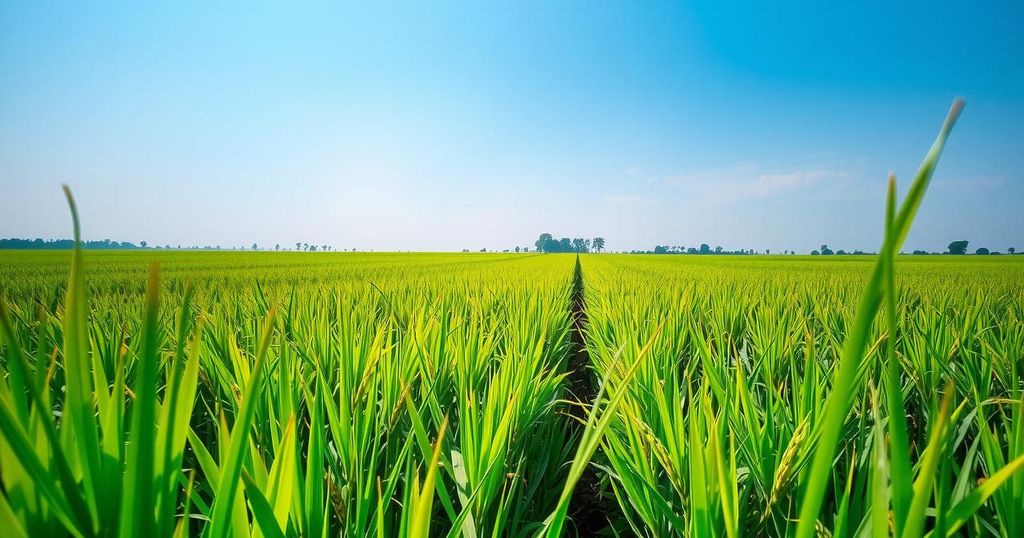The United States criticized Japan’s 700% rice import tariff during a press briefing. White House Press Secretary Karoline Leavitt mentioned potential reciprocal tariffs that President Trump is considering. Japan’s current tariff aims to protect domestic farmers, while the U.S. Trade Commission indicated a need for increased transparency.
On March 12, 2025, the United States criticized Japan’s high tariff on rice imports, which currently stands at 700%. White House Press Secretary Karoline Leavitt highlighted this during a press briefing, emphasizing President Donald Trump’s commitment to reciprocal trade practices. Leavitt stated that the administration is contemplating imposing similar tariffs in retaliation, as part of their effort to establish fair trade relations.
President Trump has directed officials to create plans for reciprocal tariffs that would mirror those imposed by trading partners. Japan’s rice tariff, specifically set at ¥341 per kilogram for imports exceeding a specific quota, aims to protect domestic rice farmers. Japan notably resisted tariff reductions during Trump’s first tenure.
The U.S. International Trade Commission recently indicated that increasing Japan’s duty-free import quota could enhance U.S. rice production and export levels. Furthermore, the Commission criticized Japan for its opaque rice import policy, which lacks sufficient transparency regarding tariff applications.
In summary, the criticism of Japan’s rice tariffs by the United States underscores ongoing tensions in trade relations, as reciprocation is sought. The discussions surrounding China’s import policies further highlight the importance of transparency and fairness in international trade practices. As these negotiations progress, it will be vital for both nations to strive for equitable trade arrangements that benefit all parties involved.
Original Source: japannews.yomiuri.co.jp




